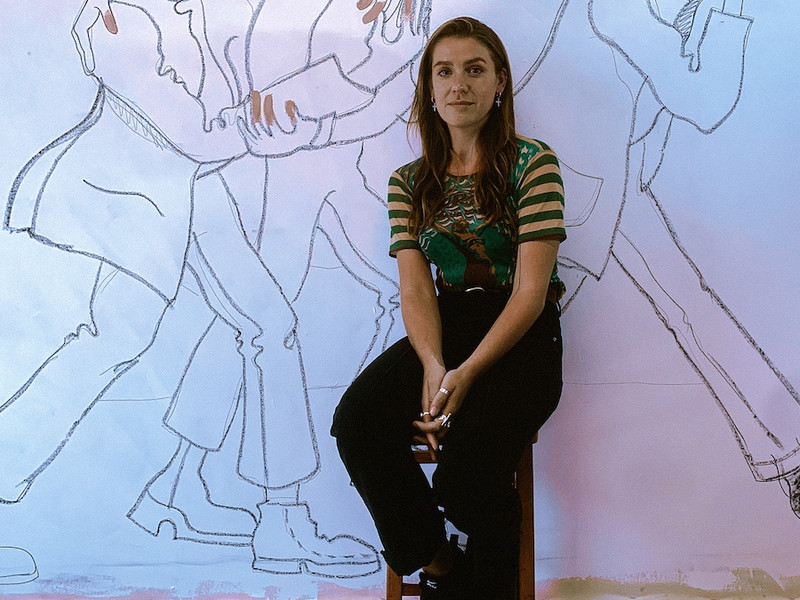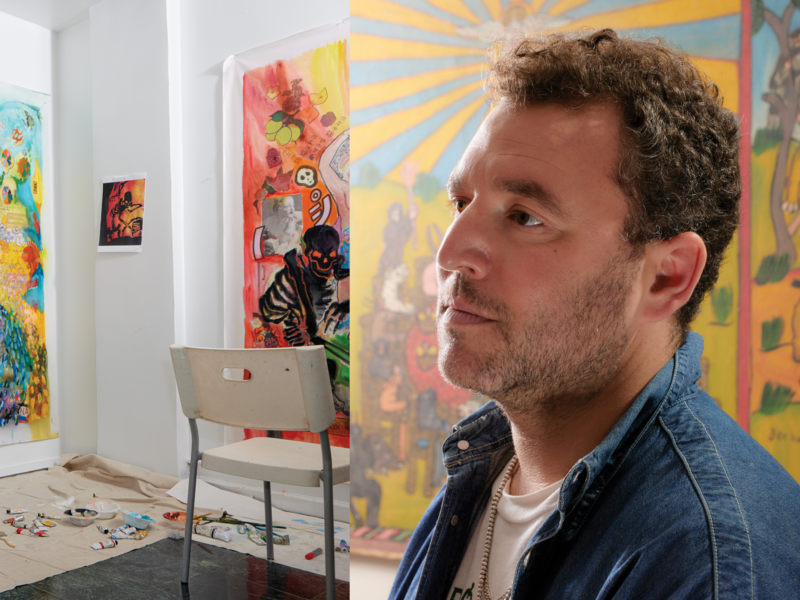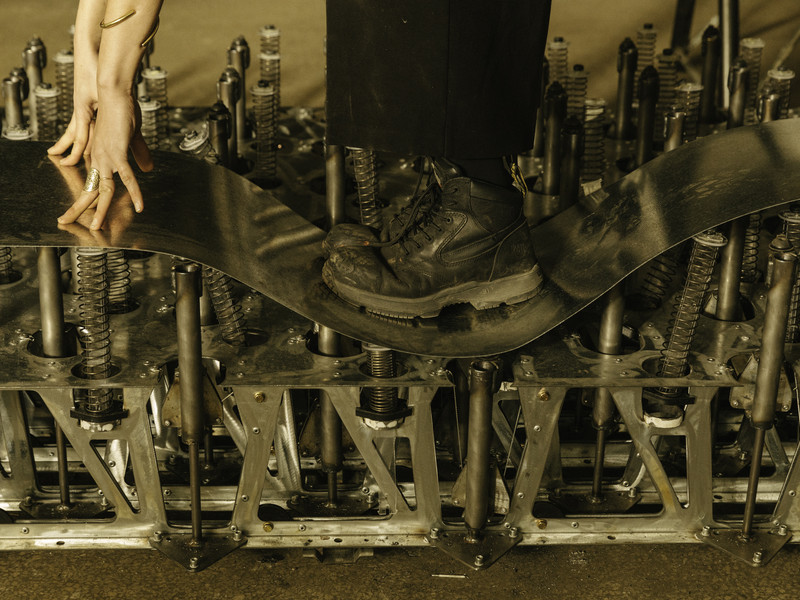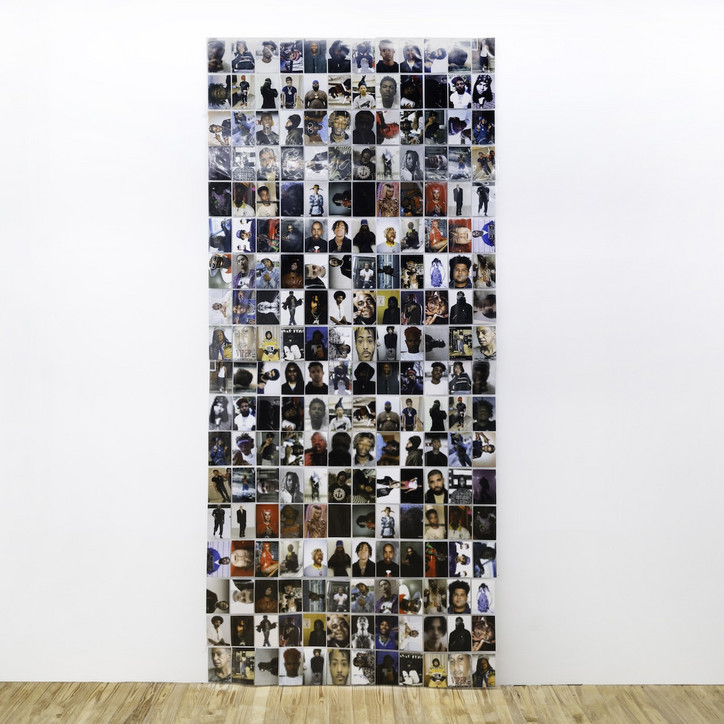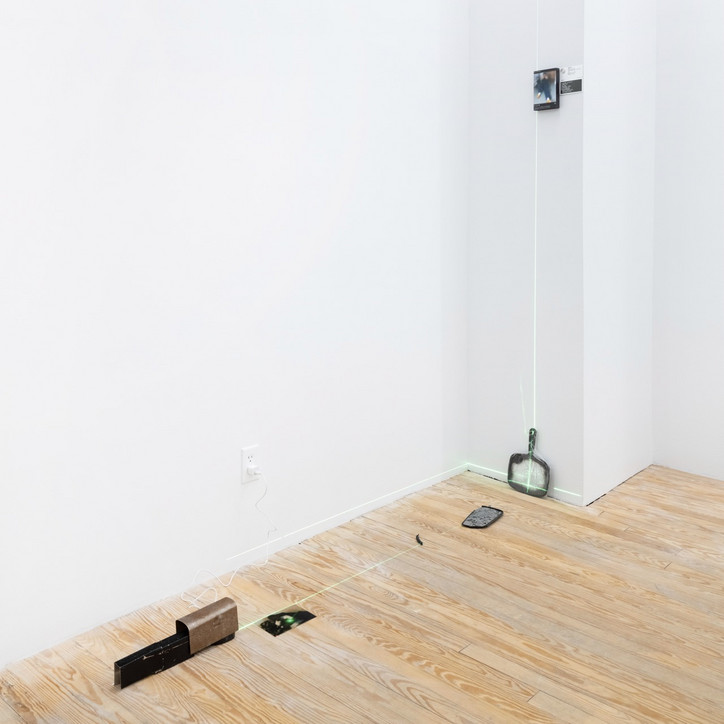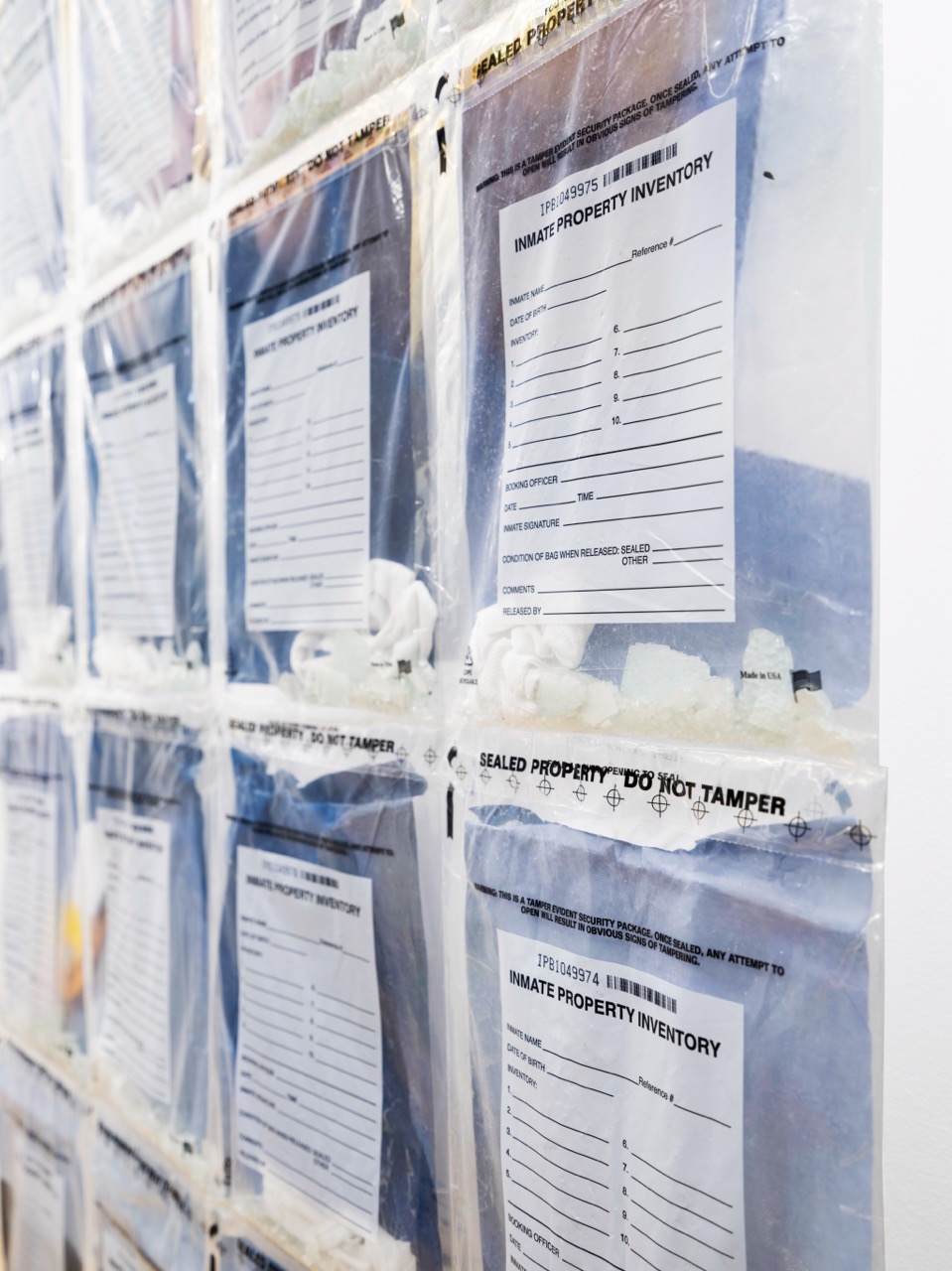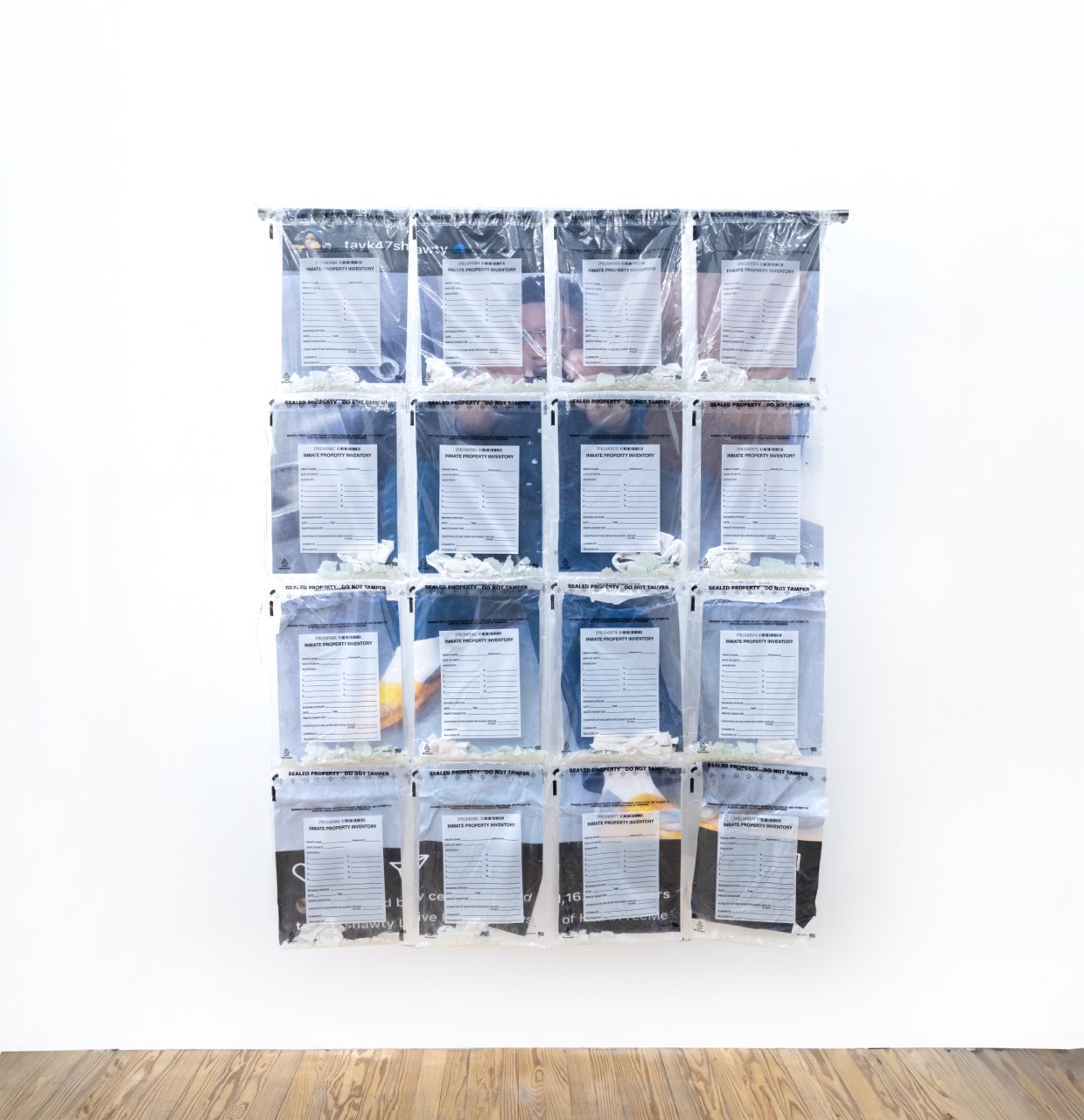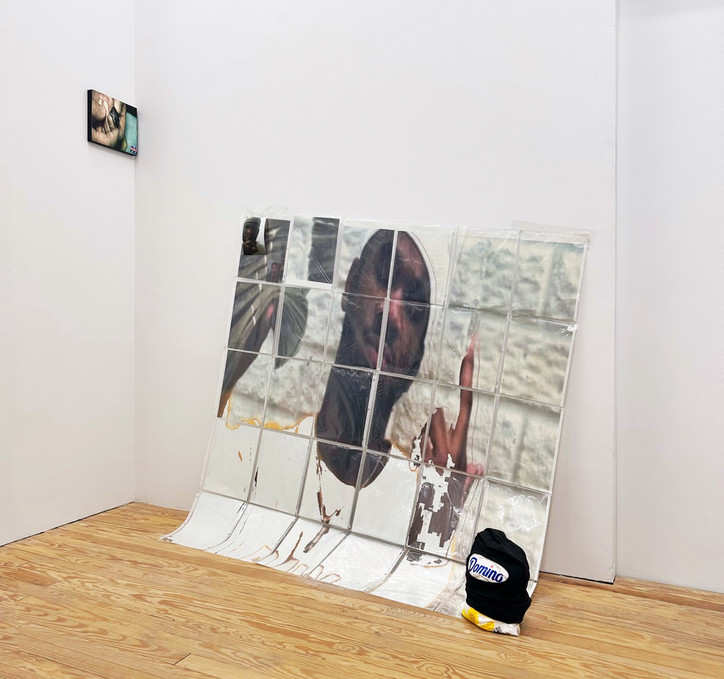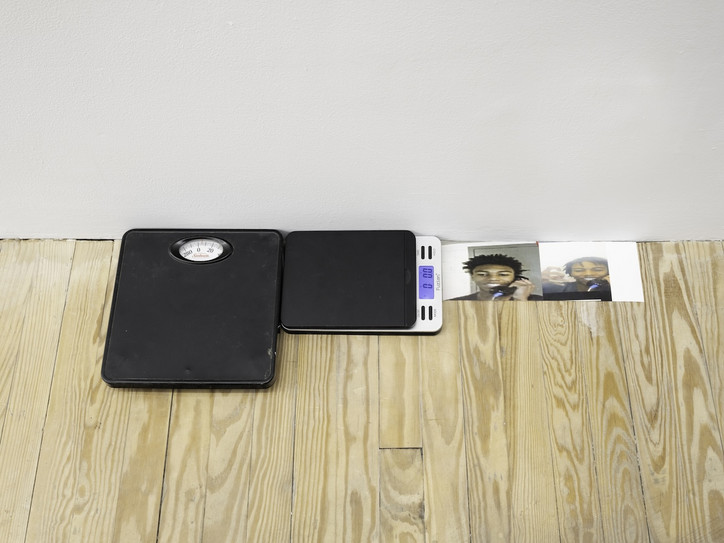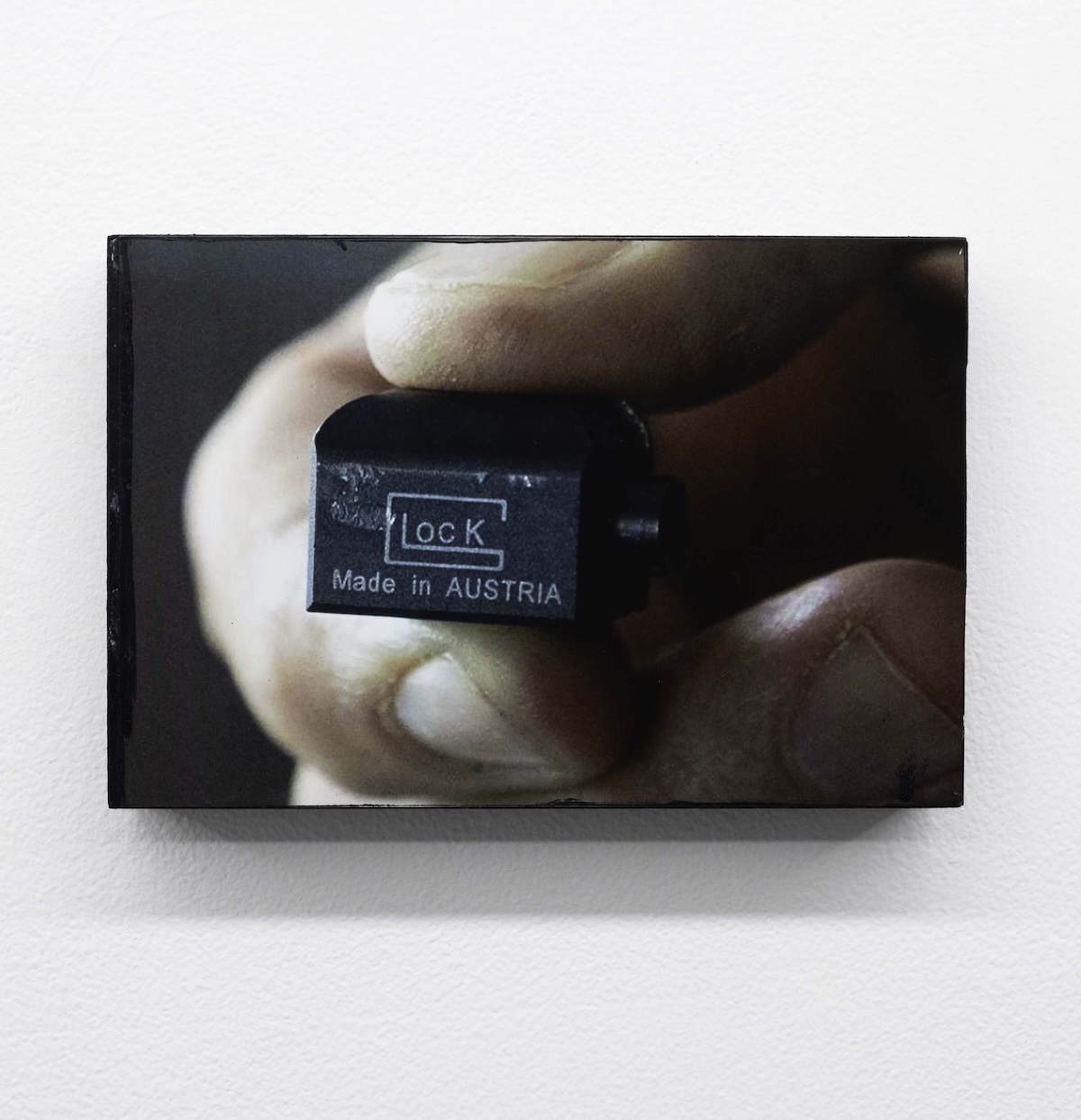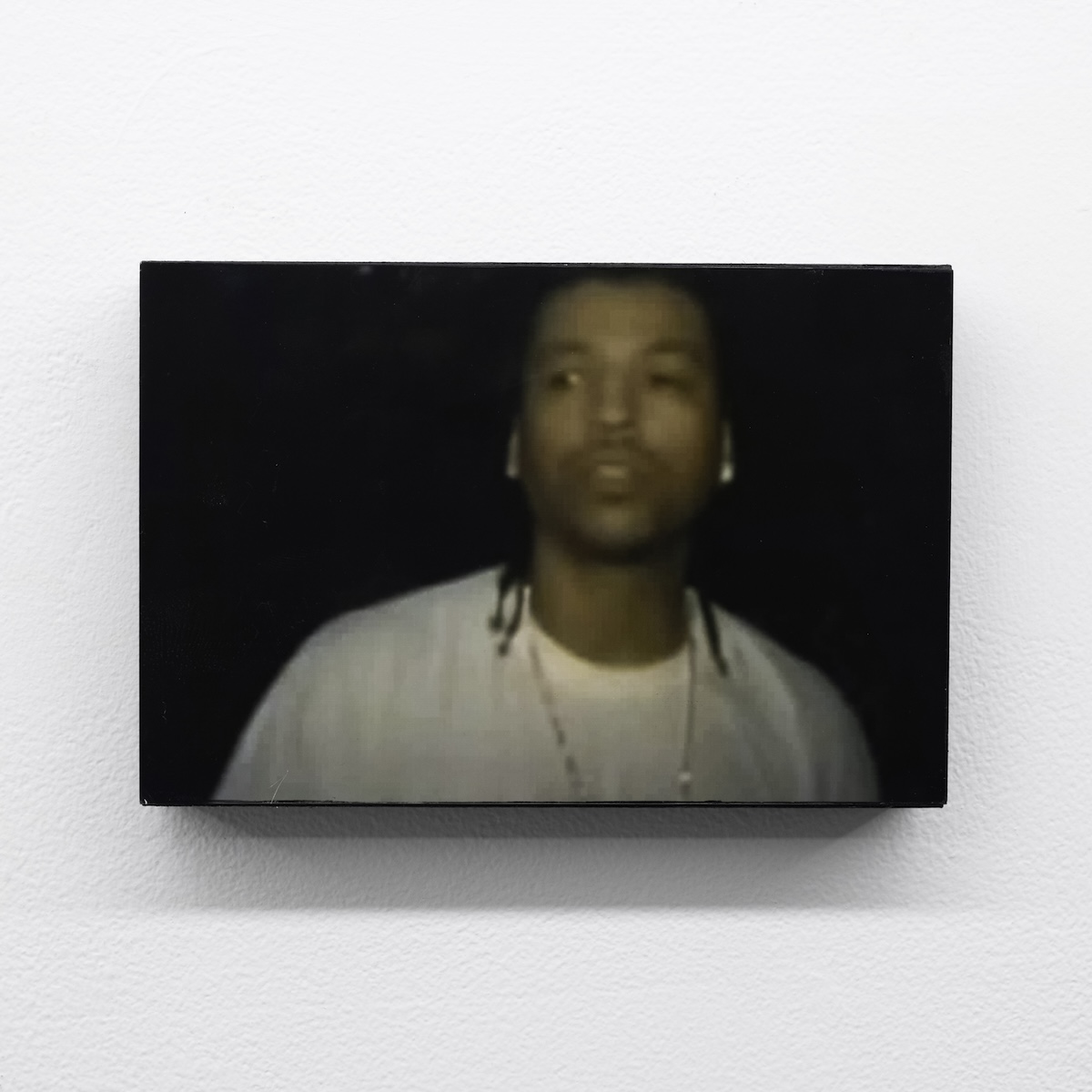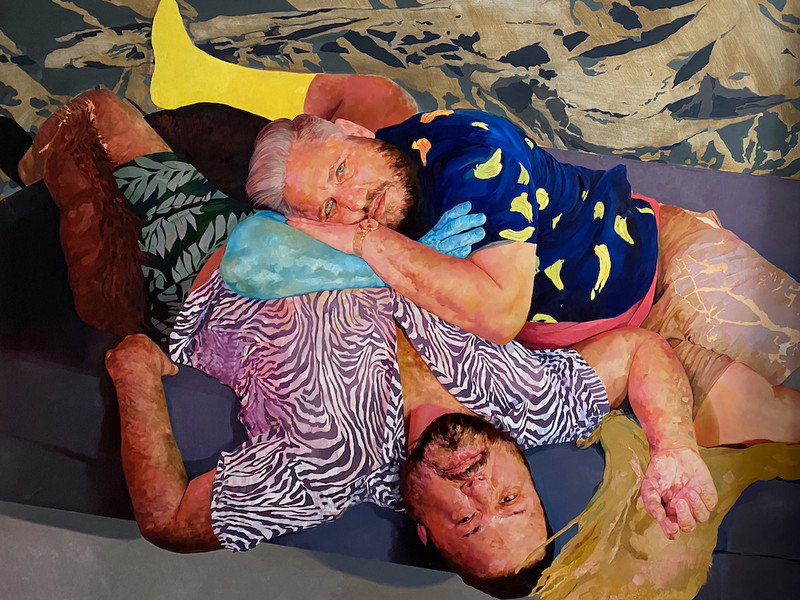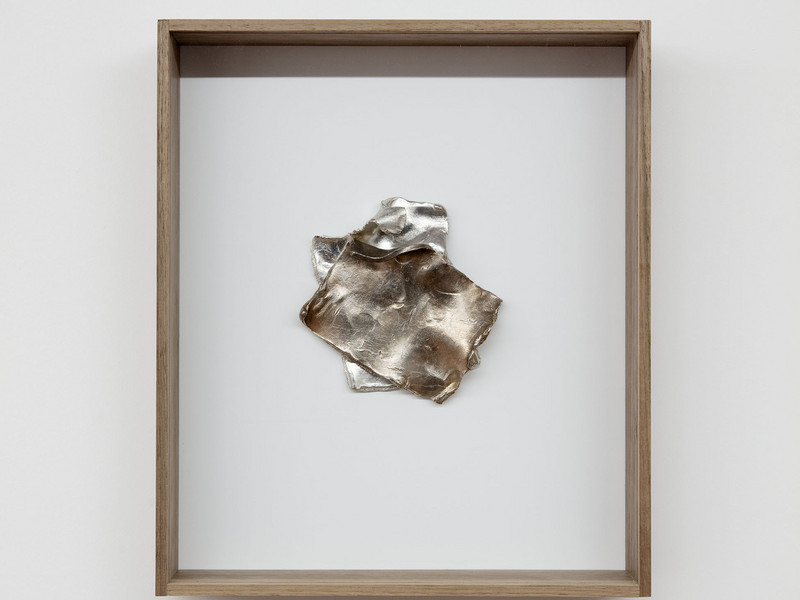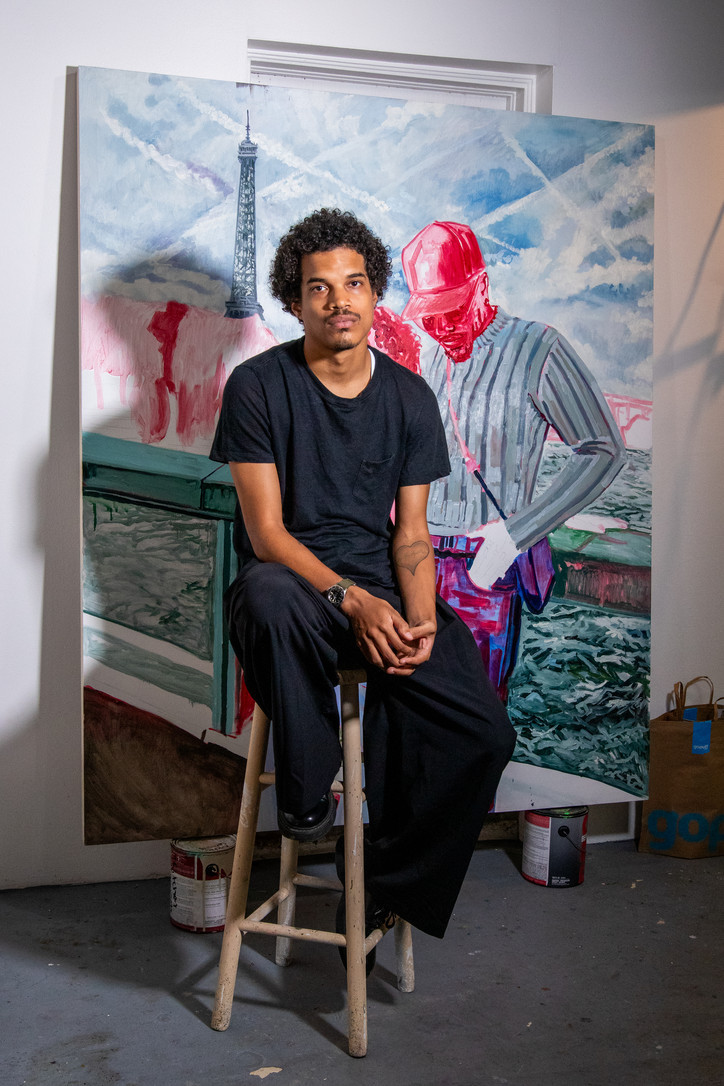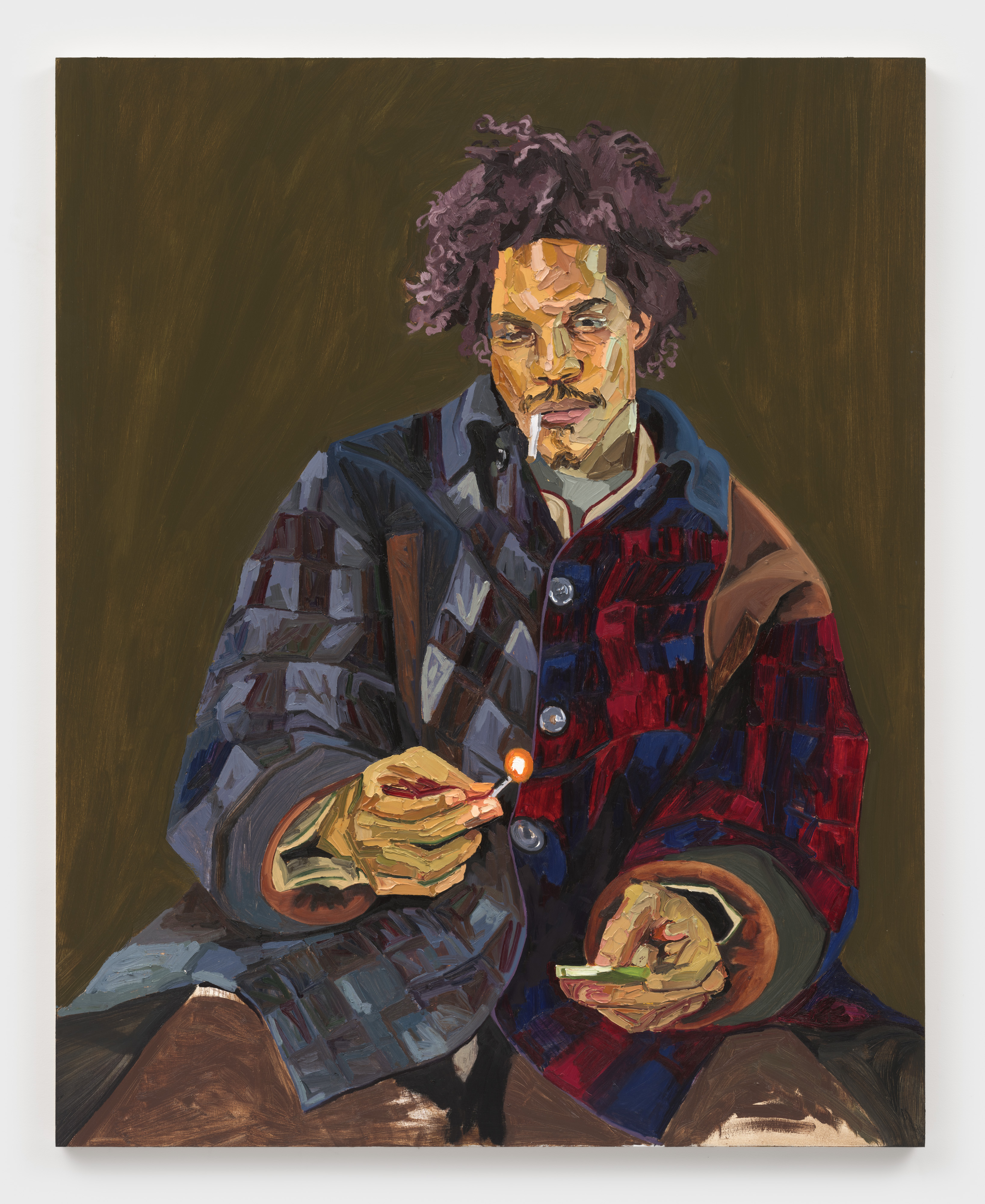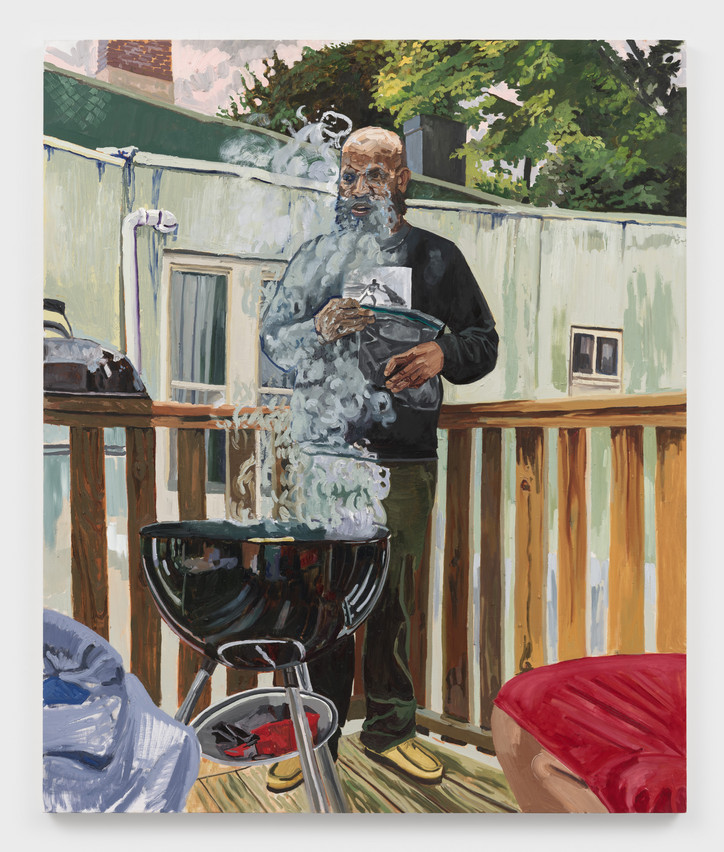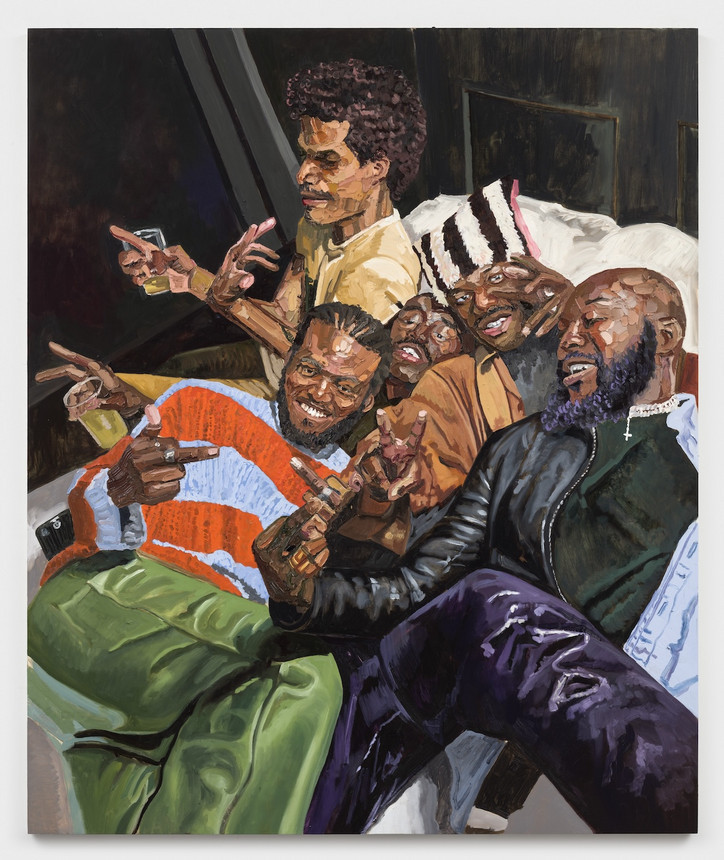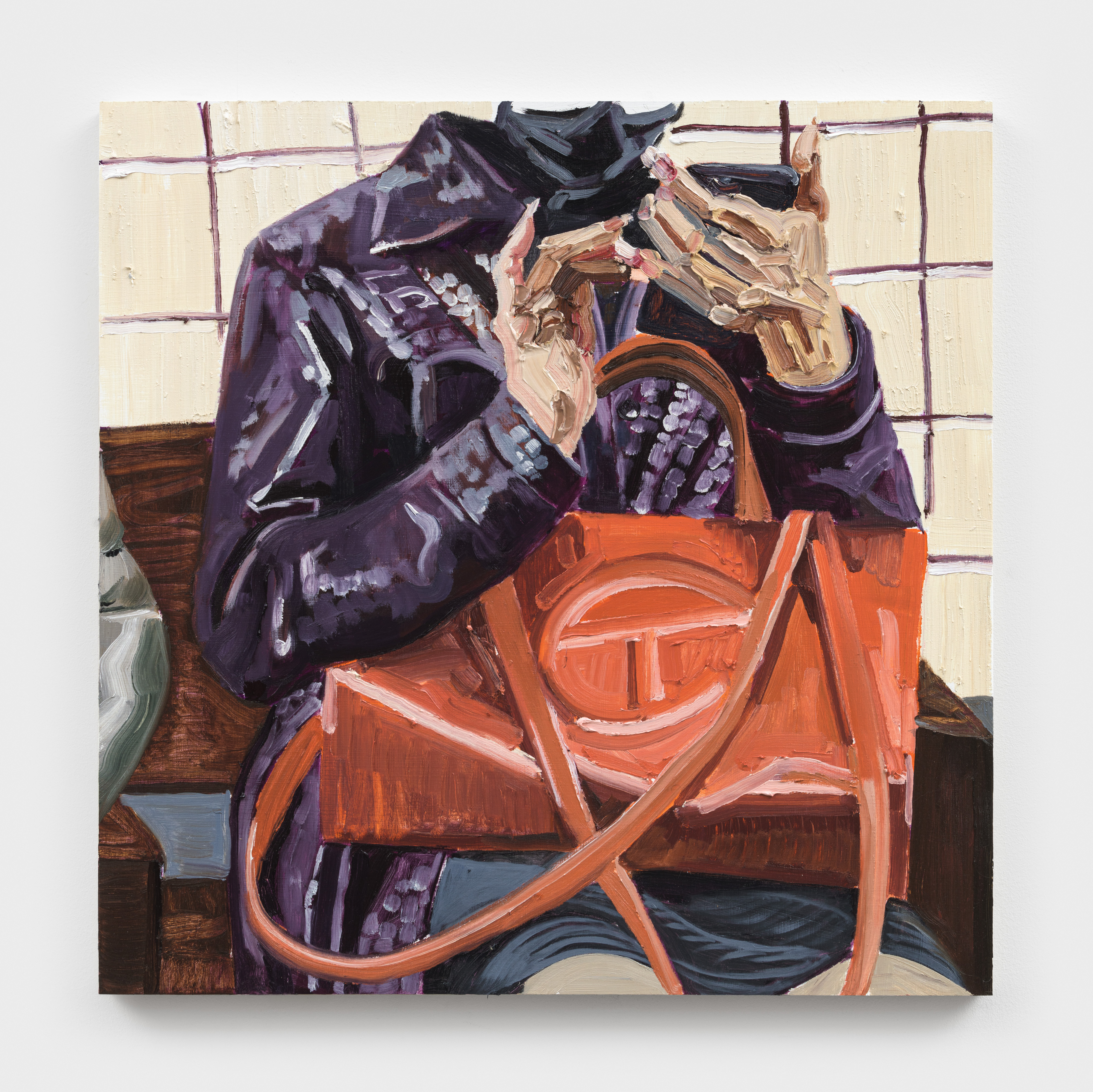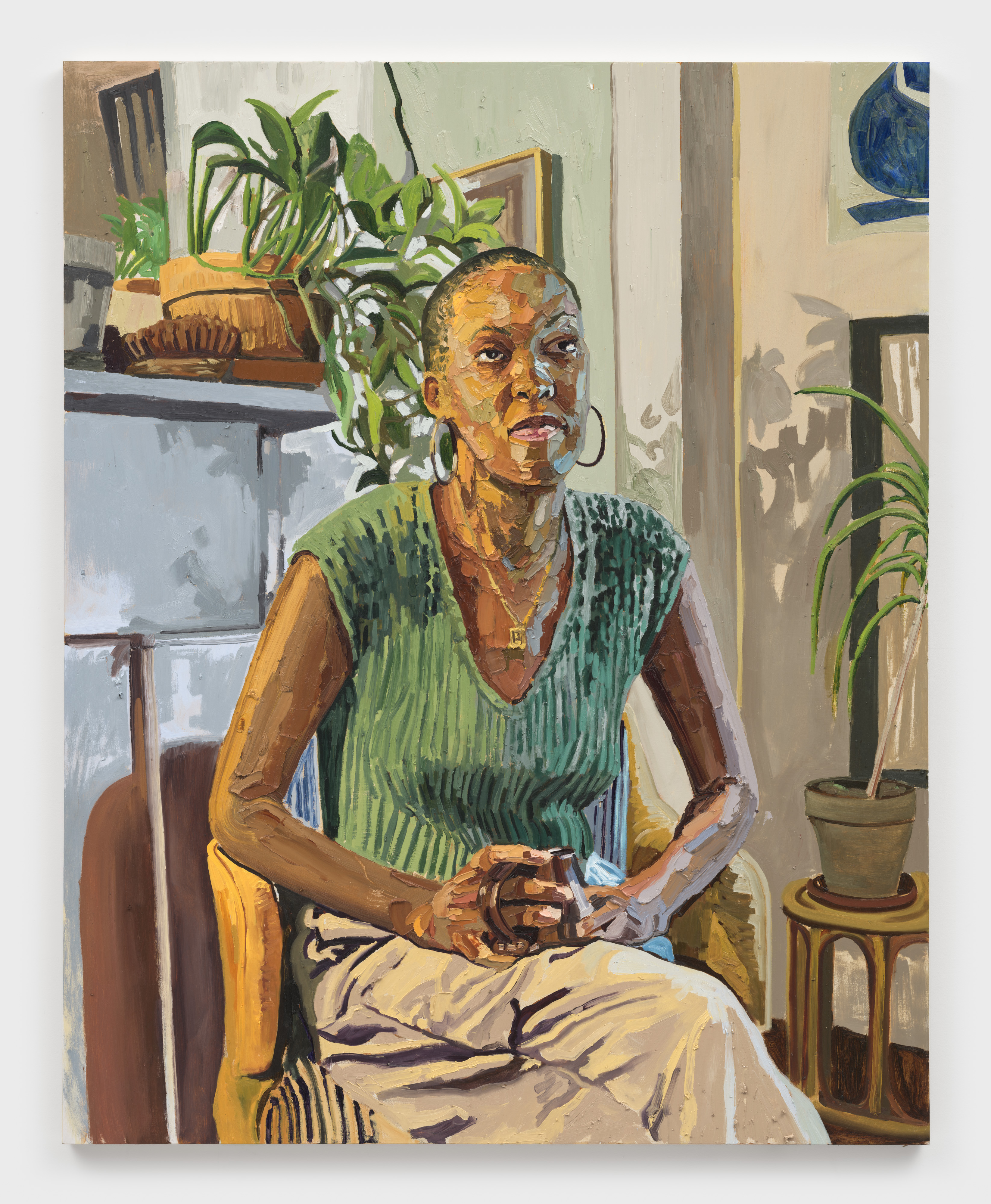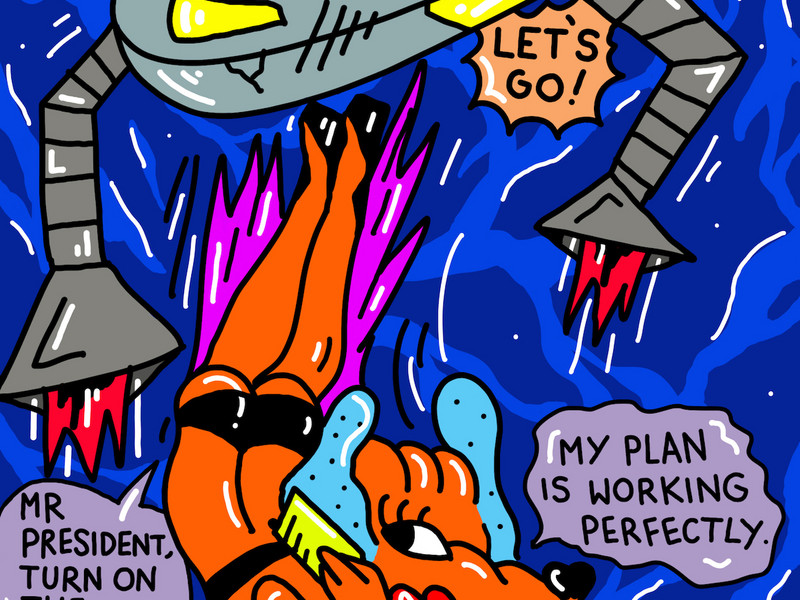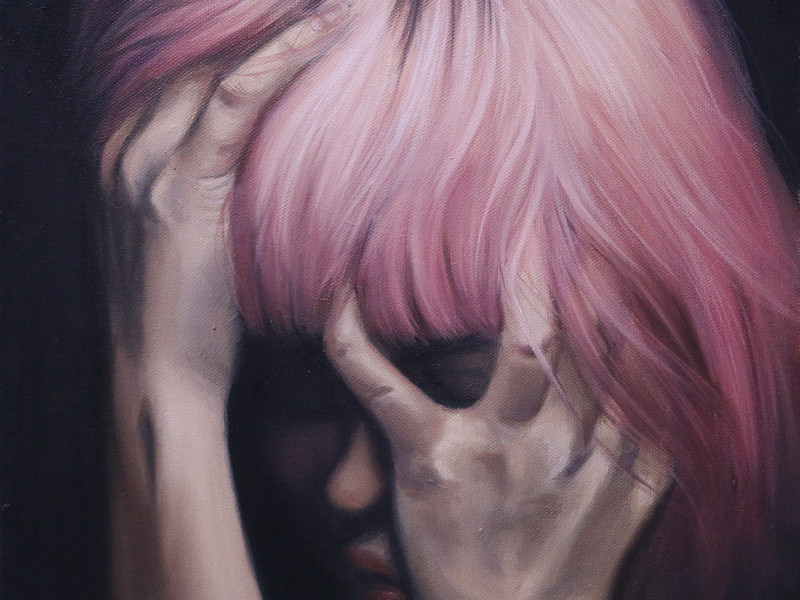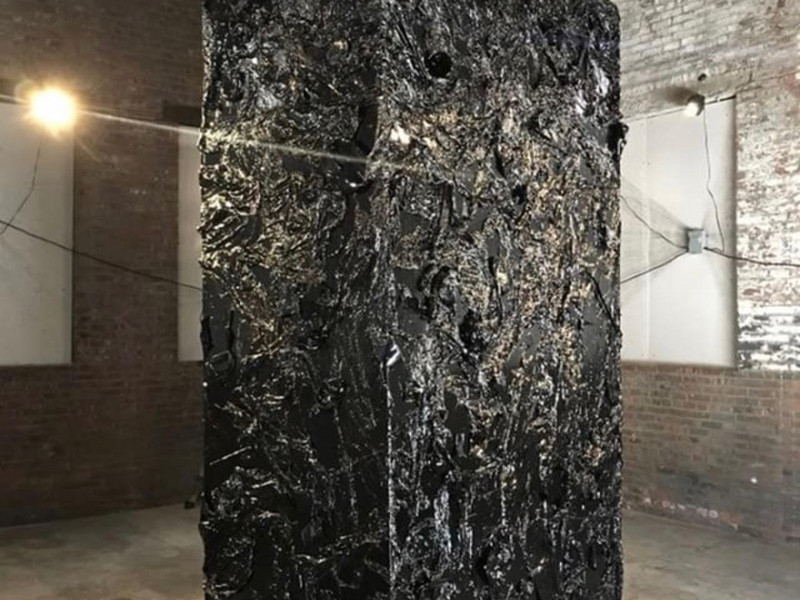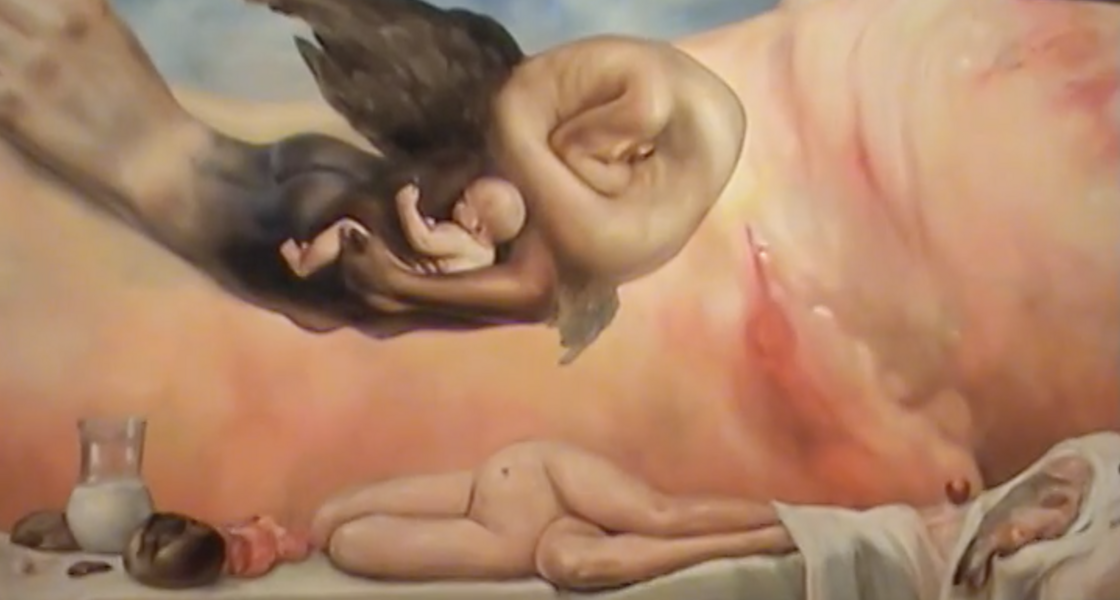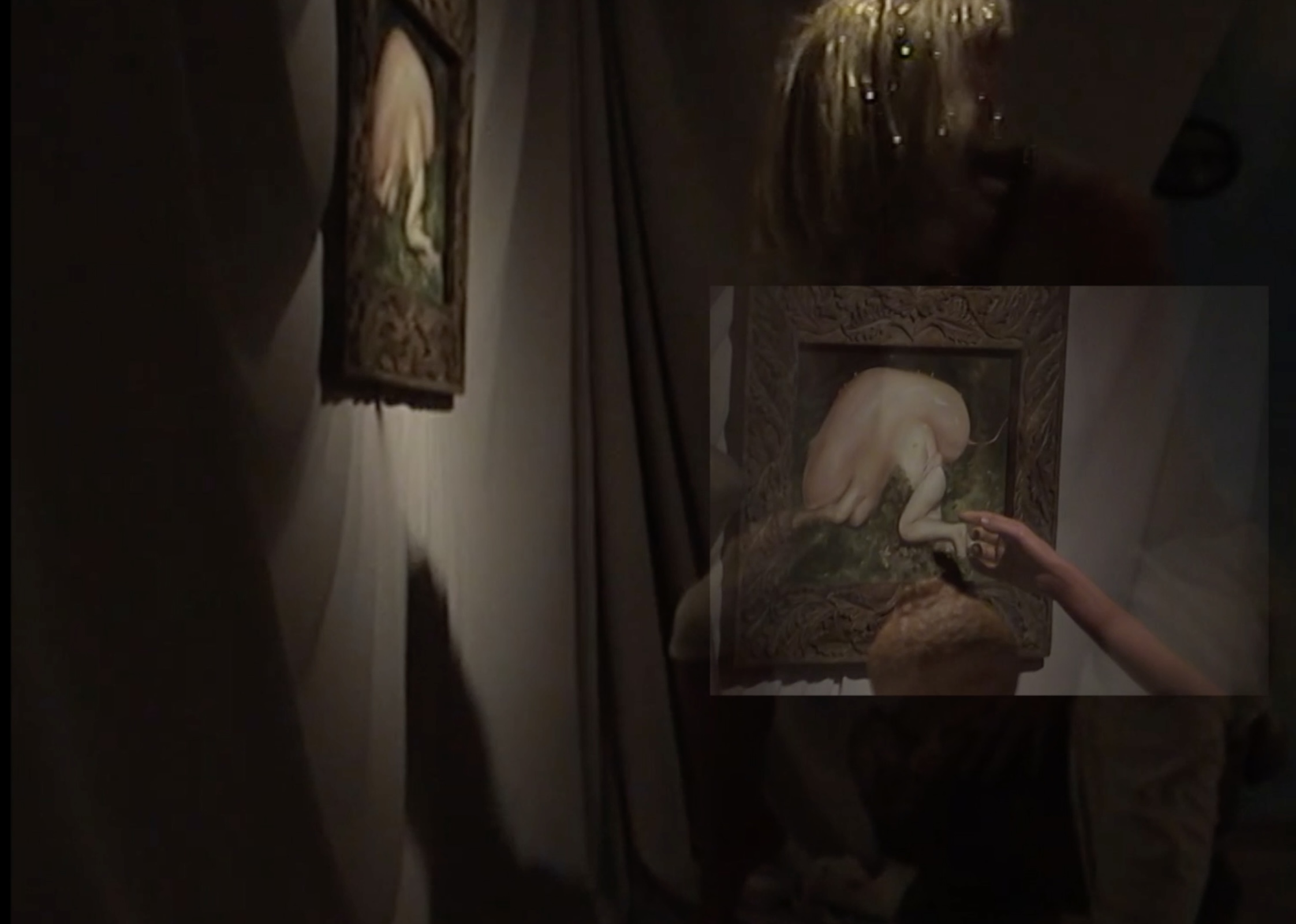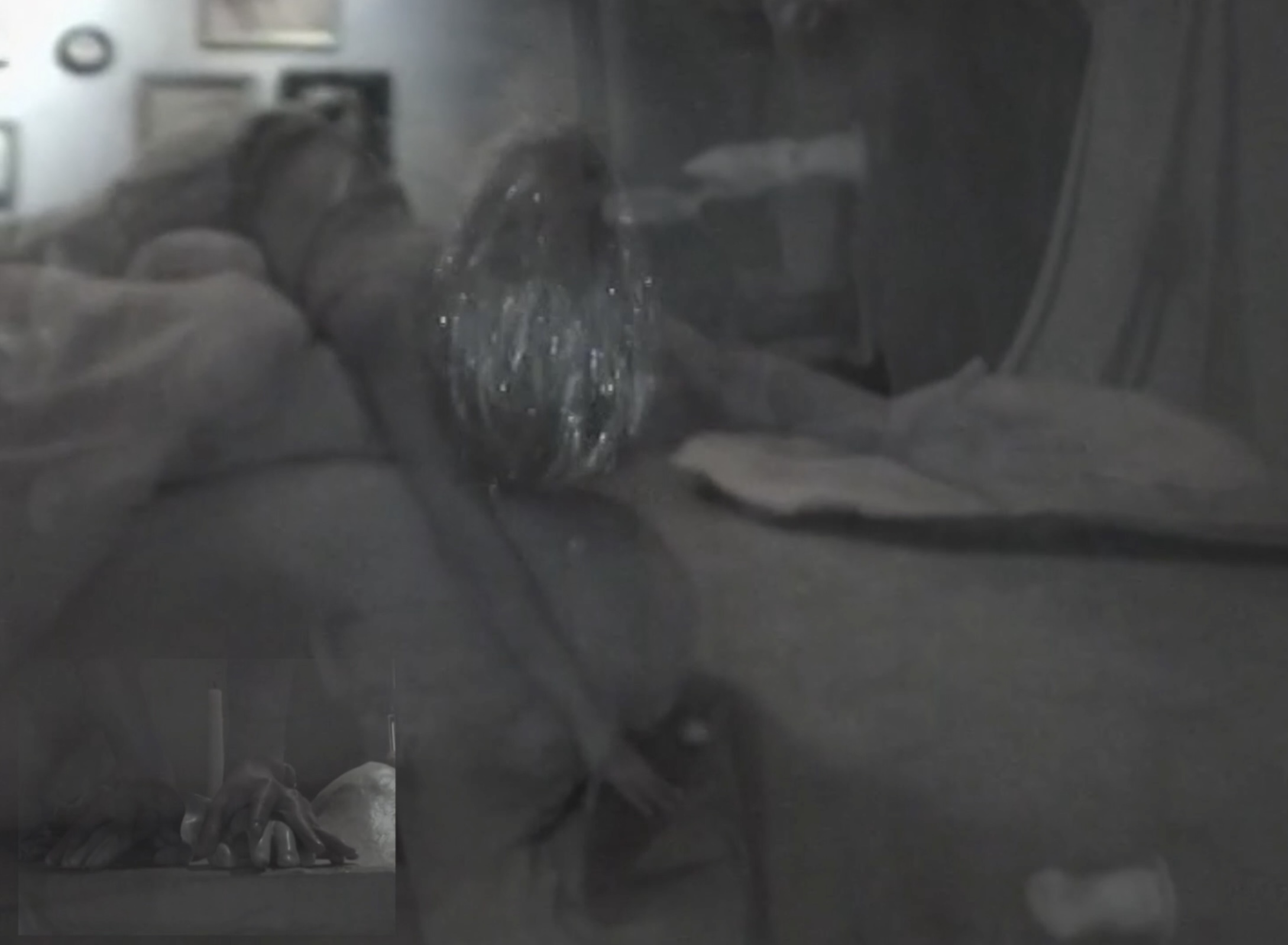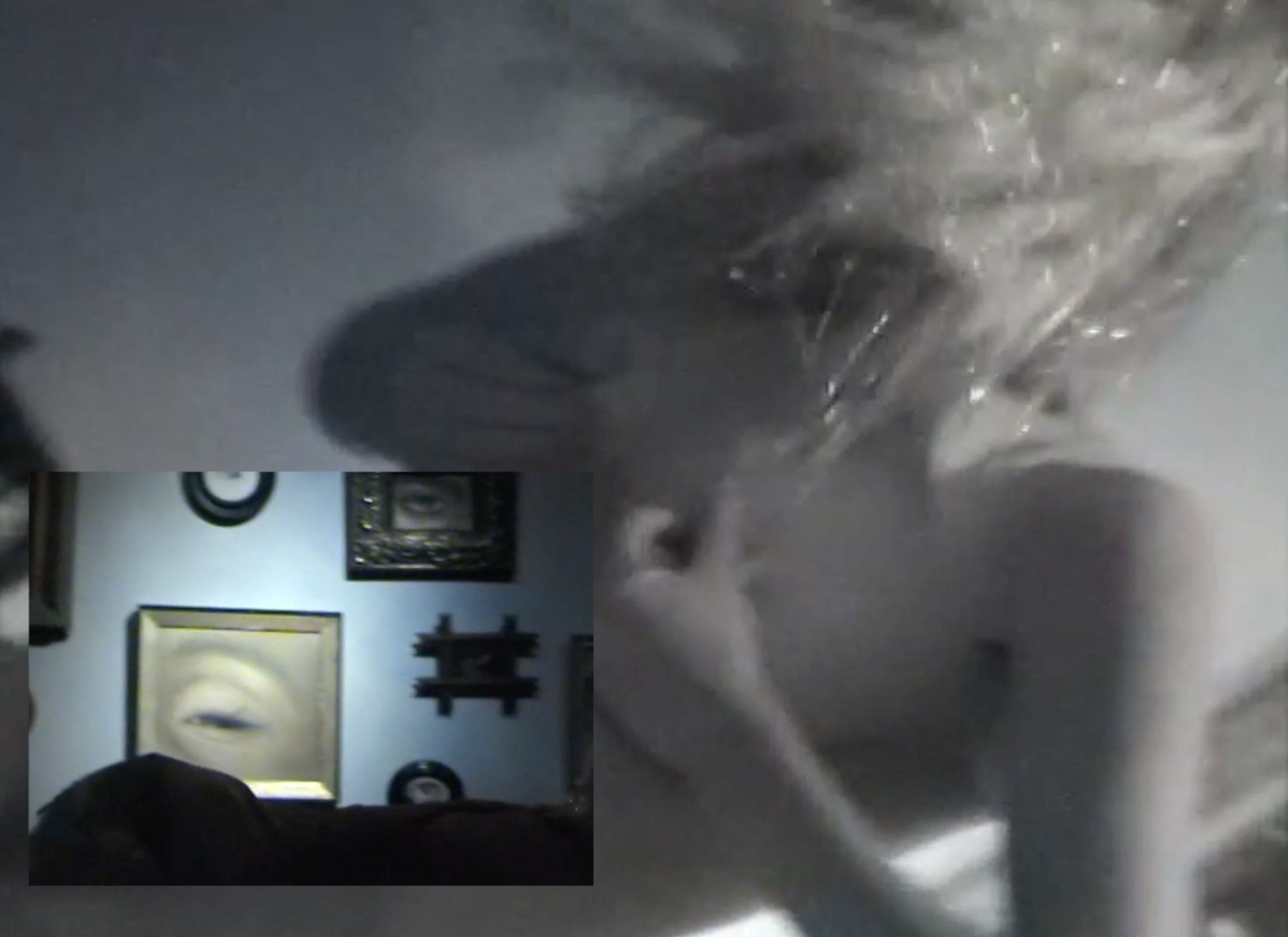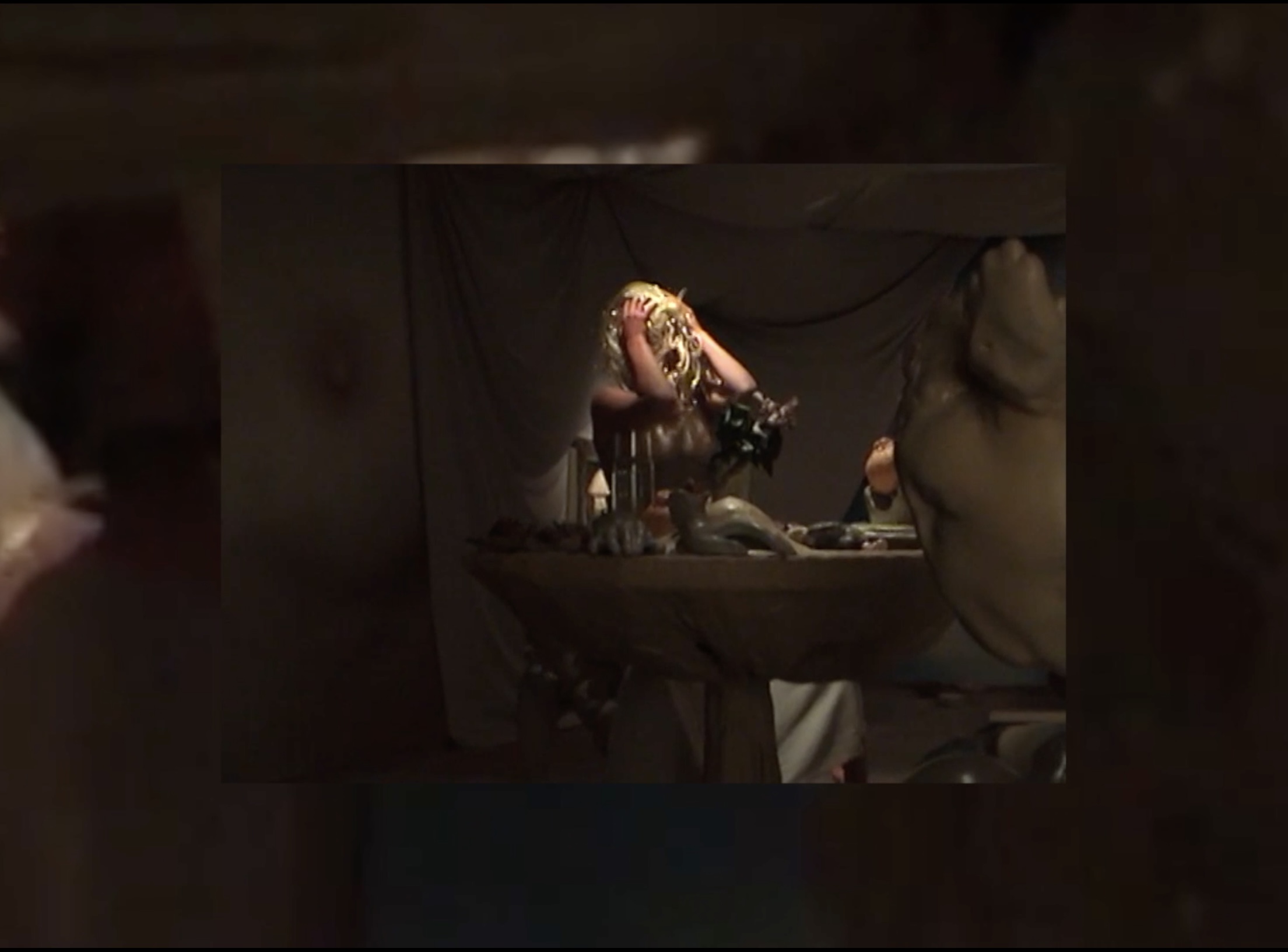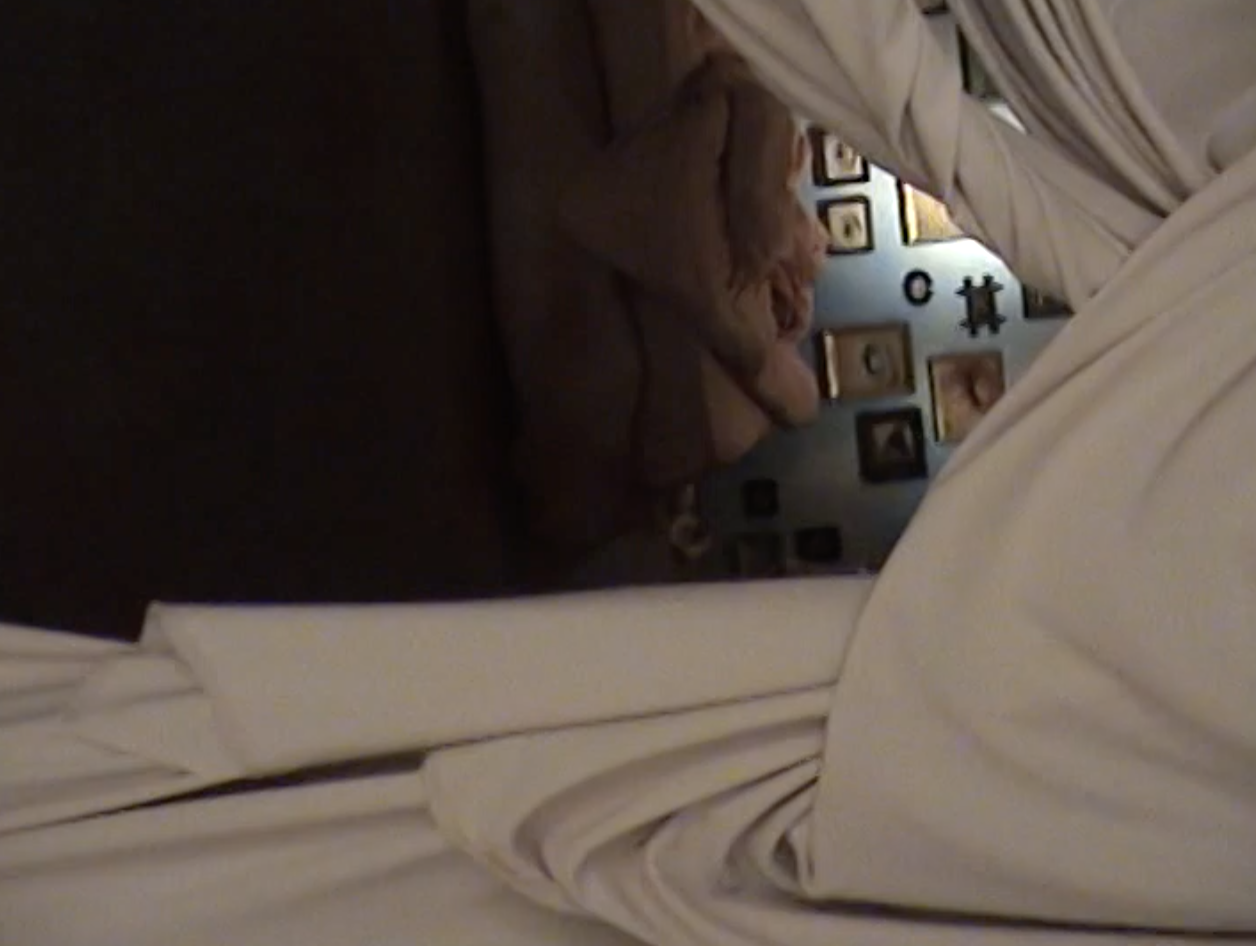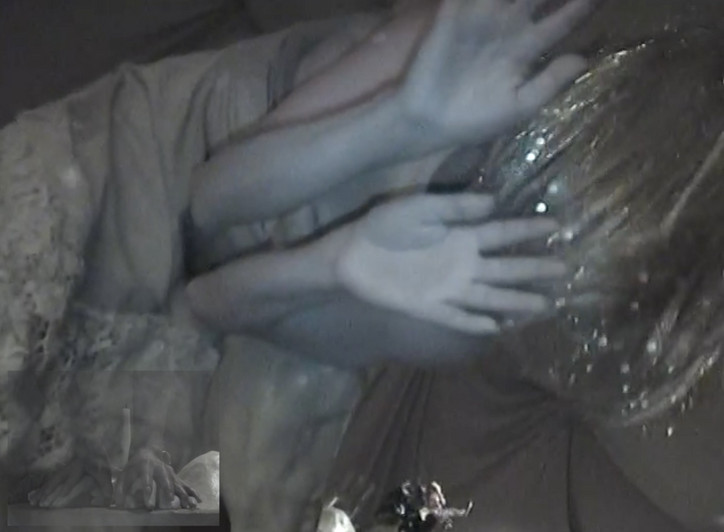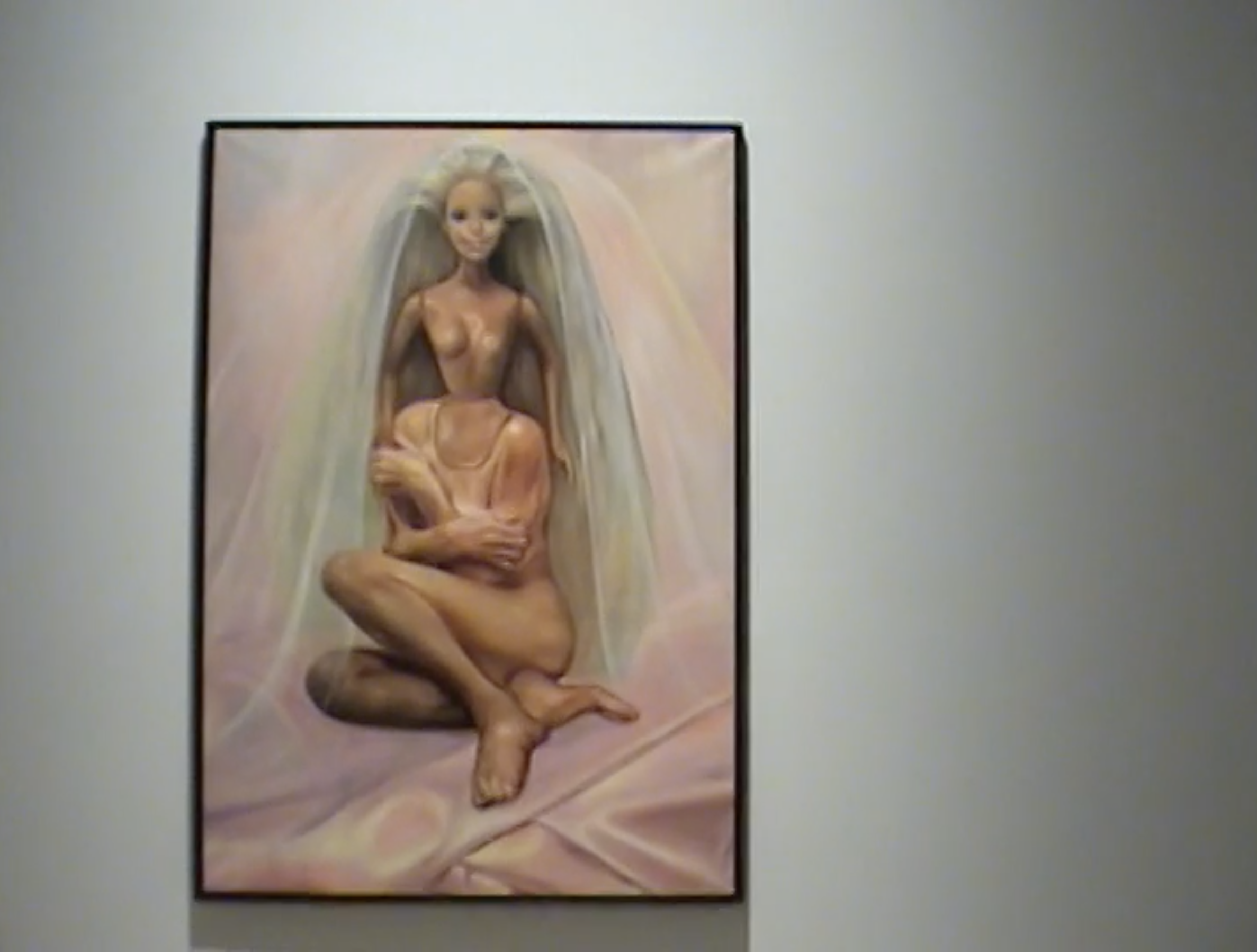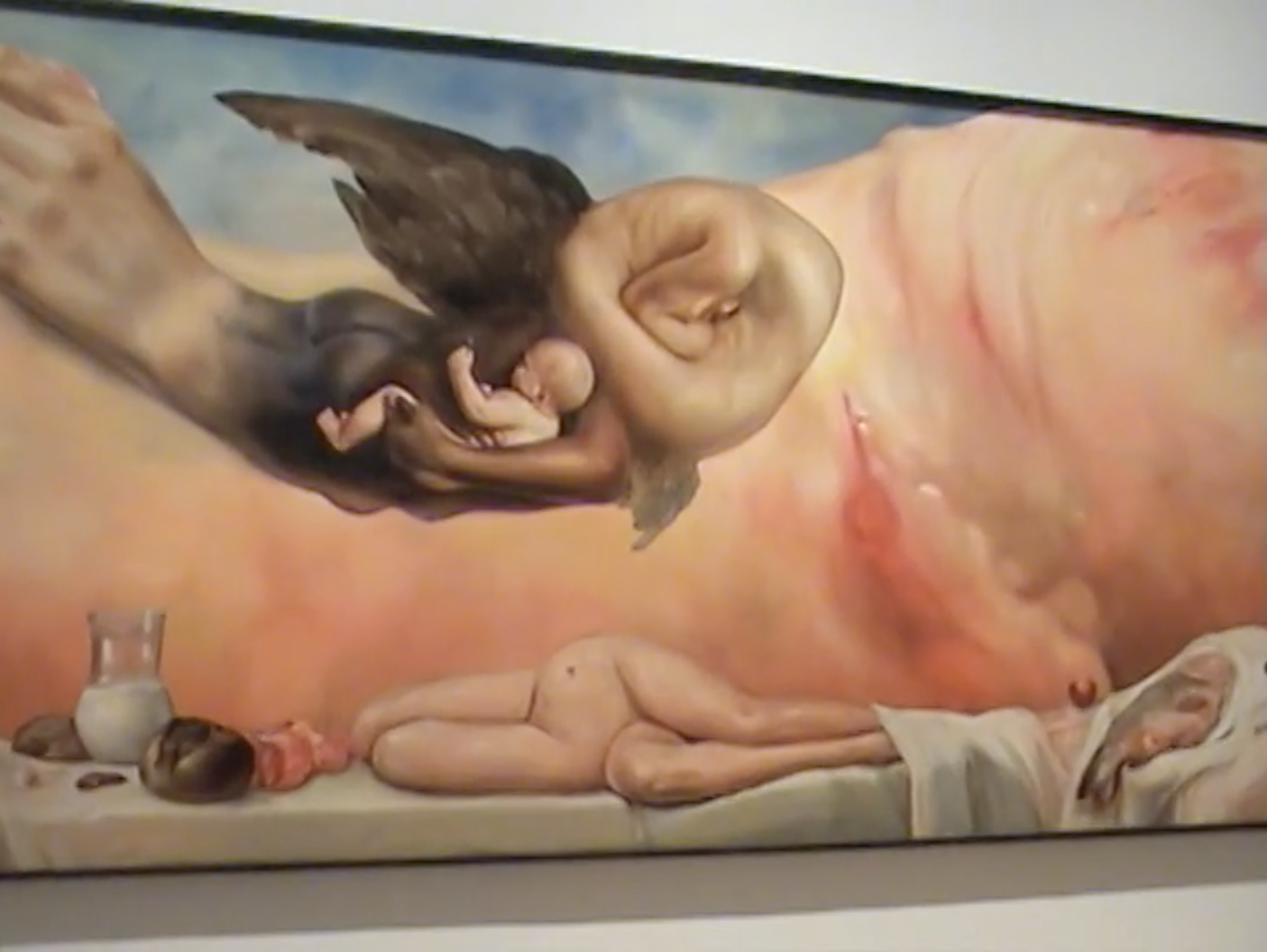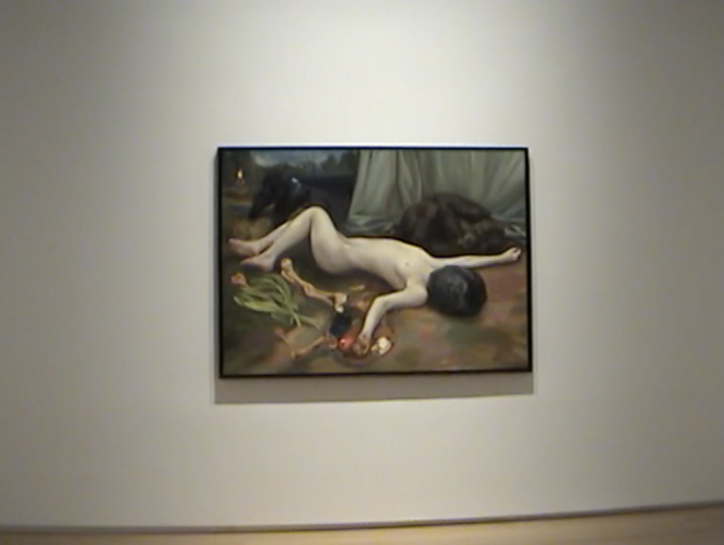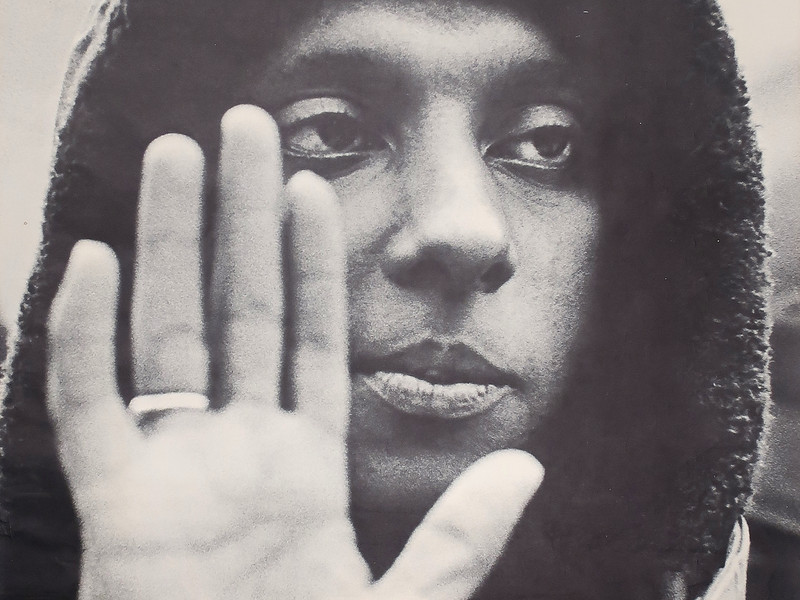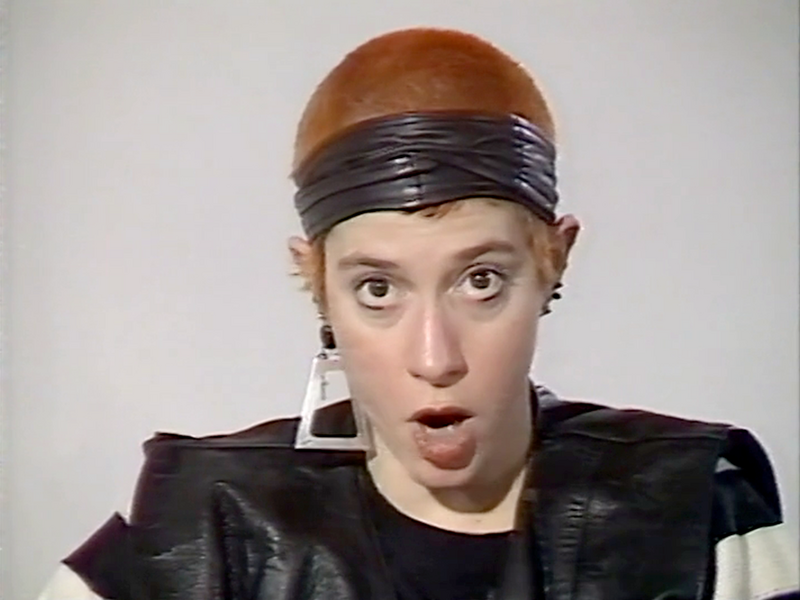No Vacancy
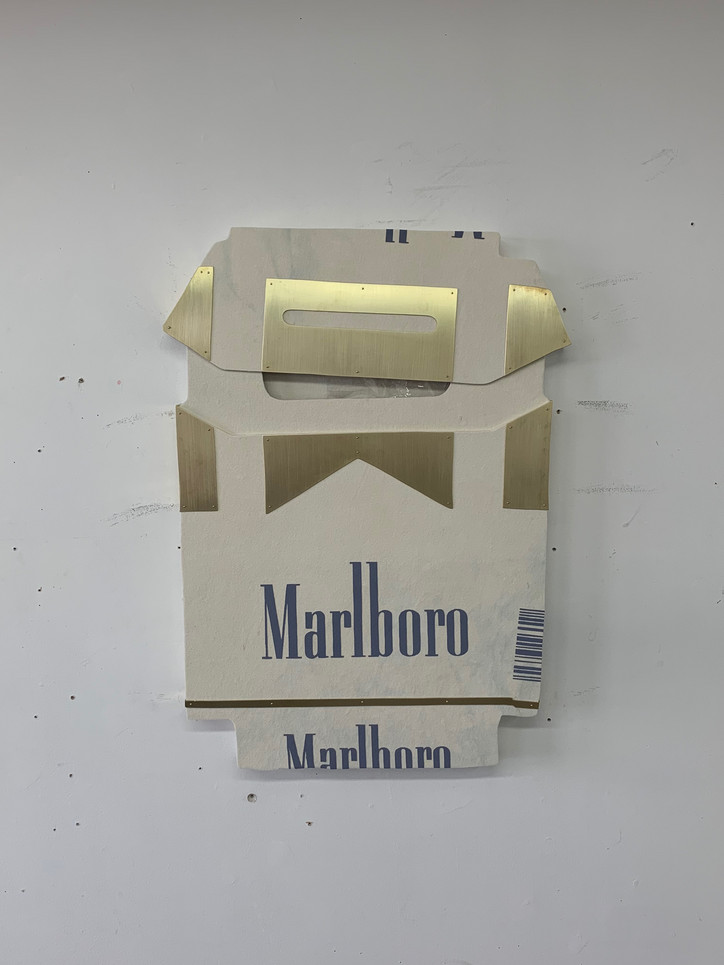
Tell me about your work.
This show in particular is an extension of the last show I did, which was called ‘The Great Escape,’ which was centered around an American road trip, and essentially masculine loneliness and the ideal of the American male, which is a stoic, lone individual on their own private journey which is antithetical to community building and human relationships. The American masculine ideal is a lone man who has no one—but is maybe very successful. This ideal is really self-destructive. I was thinking about America and what freedom is, and for me the only choice we really have is whether to live or die. But I was thinking of contemporary life as a kind of drudgery, but also relating it to photography a little bit in the sense of a snapshot of American culture and some of the darkness that is attached to America. They’re sculptures, but I think about photography a lot. I was also thinking about the American west and how it’s lived in image culture. I’ve been using a lot of the denim as a material metaphor for a complex America, something that’s not clearly defined. The history of denim, we have so many different attachments to it because of its relationship to slavery, but then it’s also this symbol of opportunity. What jeans actually come out of—I think Levi’s was the one that added a rivet to the blue jean because the gold miners needed something that wouldn’t tear away.
What is a rivet?
On your blue jeans on the pockets they have those little metal bumps—those are rivets.
I always wondered about those.
Those are there because when you use your pockets a ton, they’ll just rip. So they added those rivets to give the pockets a lot of strength so that the gold miners could have something that was actually functional. So they became this American workwear symbol, so they came to symbolize the working class but simultaneously in the 60s they became this revolutionary type of situation and a fashion icon. So they have this layered history that we walk around with of this really complex picture of America. It’s not neatly wrapped up—there are really great things about America but also really dark things about America that are super fucked up, and I think that dissonance is really key way of what it means to be an American. Obviously we’re all suffering from the complications of a nuanced conversation politically. To me, metaphorically, how I think about America and how I feel, denim kind of plays into the complications, but also visually with the mood—it has this somber, again back to photography, it’s like how you take a photo and make it black and white and it suddenly has this sort of nostalgic feel. So rendering things in this blue cast gives it this contemplative sort of sadness.
The current show is called ‘No Vacancy’, and I imagined it as a character in a motel room on the road, I was thinking about that feeling of being alone—I can maybe imagine being completely hungover and alone in the motel room and trying to imagine how your life got to a certain place, and you can’t really put it together but you feel the pain of it.
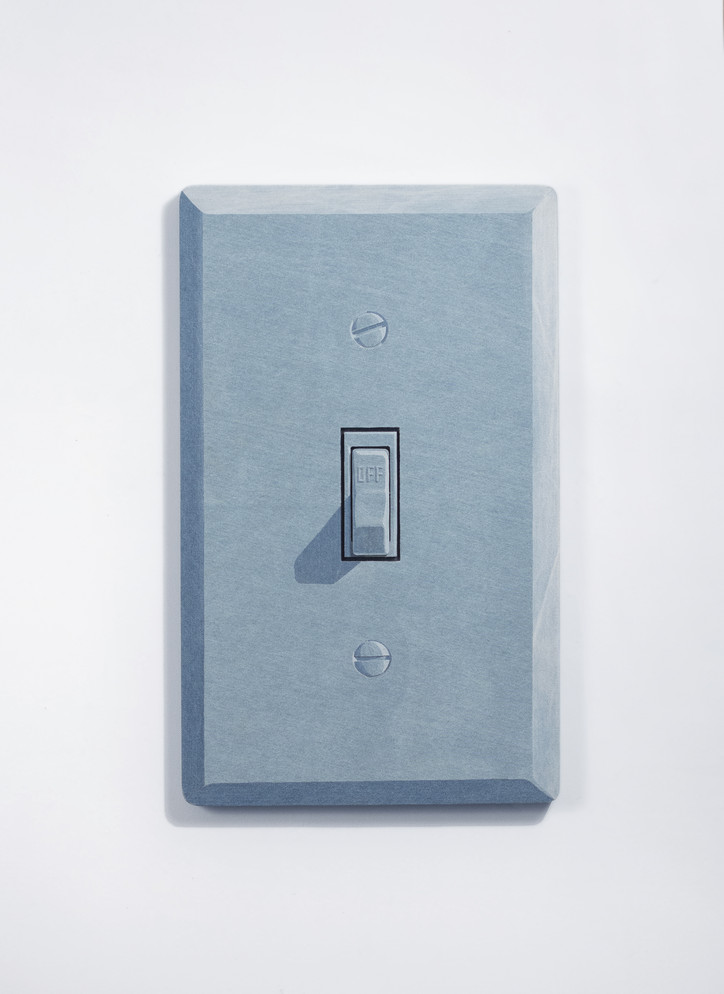
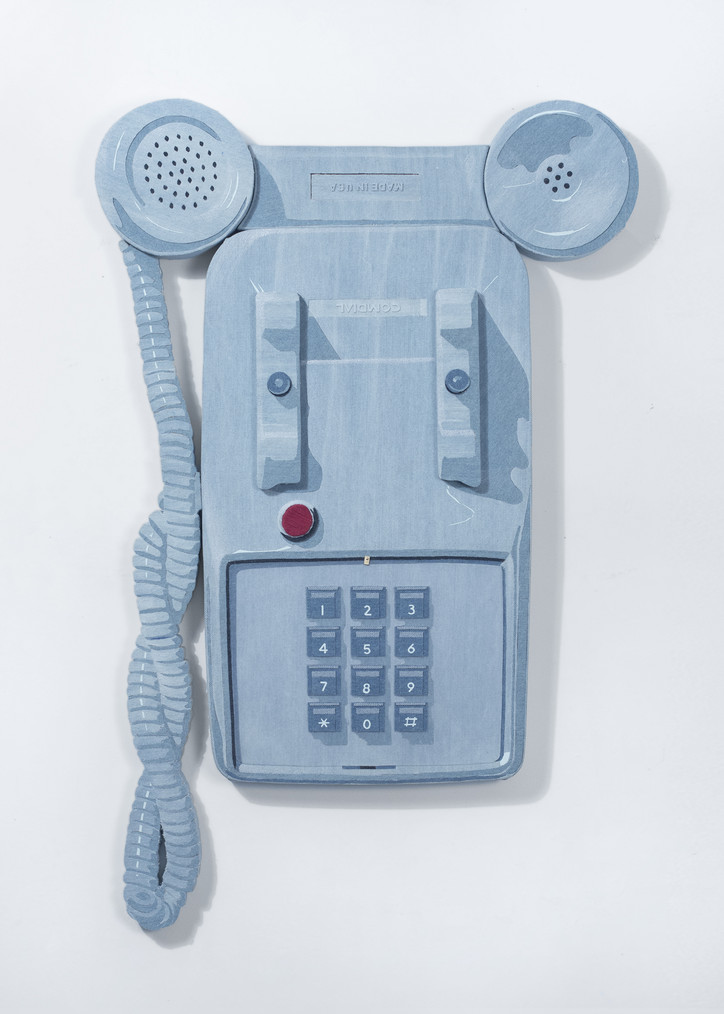
Above: 'Hello darkness my old friend' and 'Do not disturb'
They’re essentially still lifes of objects that are really kind of unremarkable. Once you put that little story together, it reminds me of Mad Men. It’s like Don Draper realness.
Totally. That show, however successful or unsuccessful it was, it really isolated a feeling.
Of that perpetually traveling man.
It’s an ideal of never setting down roots. Which is essentially really strange, and antithetical to life in a lot of ways.
I think about that a lot too, because it seems like the pattern of American life is a lot different than pretty much everywhere else on Earth: you leave the nest, you leave your family, and you never go back, you go carve out your own life. Whereas in other countries the family unit sticks together throughout their lives, they’ll have three or four generations living in a single household sometimes, but in the United States it’s all about carving your own independent path. I call it the cult of the individual.
I think about the beginnings of the country, too—we defined ourselves by burning the bridge that got us here. My dad always had this stupid fridge magnet that says, ‘Doesn’t play well with others,’ and I think about that phrase, ‘Guided by the light of the bridges I’ve burned.’
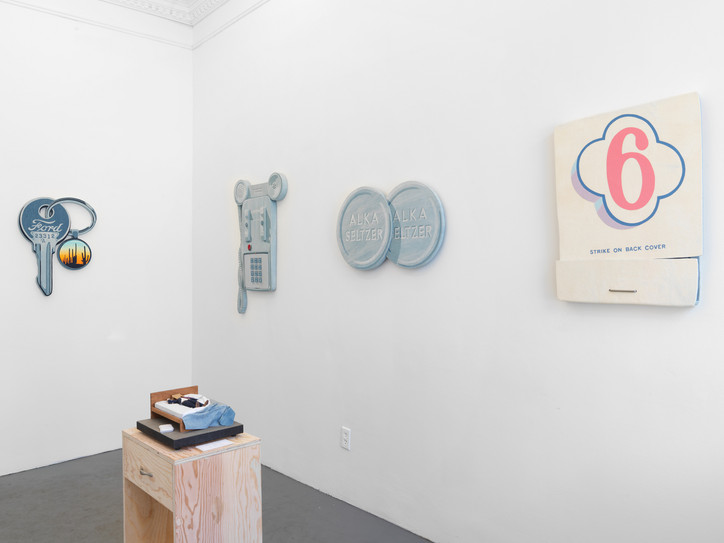
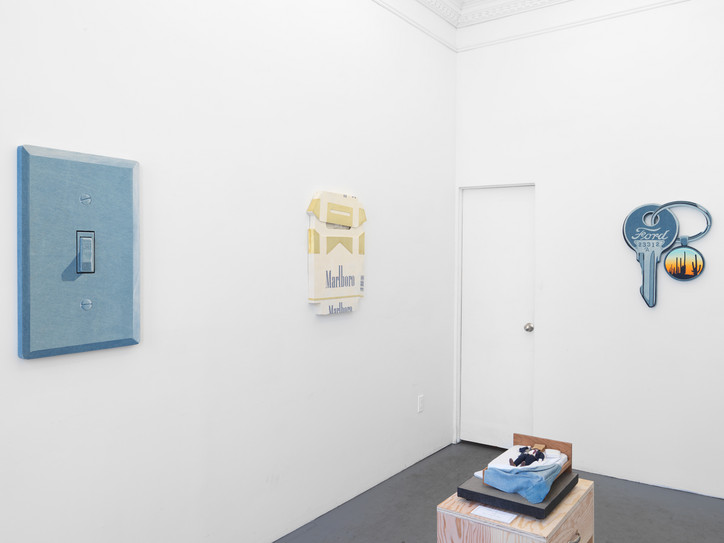
Above: Install views.
That’s a great one, I’ve never heard that. My dad’s phrase was ‘That which does not kill me makes me stronger,’ and my mom’s was ‘Normal people worry me.
That’s so funny.
Do you feel personally connected to this, have you carved out this sort of path in your life?
I think for a long time I was very unconsciously following these masculine ideals, and it literally fucked my life up. It was crazy, I had a total crash and I was like, ‘What the fuck? I’m doing all the things that it seems like the world wants me to do.’ It’s a weird thing, there’s a social role you’re born into with expectations placed upon it, who you are or whatever kind of thing people are trying to organize you into. I think there are advantages to playing to that and also severe disadvantages—the road to being a bad person is really paved, it seems like open arms that are saying, ‘Come to the dark side.’ It takes a lot of strength to learn kindness and to be compassionate to other people.
I was listening to a TED Talk about the researcher who was studying either the gorilla or the orangutan, but he popularized the idea of the alpha male—it got completely misconstrued. His original argument was that the alpha male did a lot of emotional labor in the community, literally things like kissing babies, consoling others, and doing all this work that was an example of a compassionate male. There are so many examples of people in power who seem to think being cold is being strong, which is actually damaging in terms of setting an example, but also counter to what a social hierarchy needs in order to be sustainable at all.
My girlfriend and I always joke about men behaving badly and we say, ‘Just another man dealing with his feelings.’ We joke that everybody suffers at the hands of a white man dealing with their feelings poorly. We have this collective suffering of this totally unjust situation.
It’s an interesting look at masculinity. I think masculinity is really in question right now, because what does it really even mean to be masculine? Or feminine for that matter? I love the silence of these objects, they seem almost like this stiff upper lip.
But the eyes don’t lie. You see someone who’s clearly in pain or suffering and they’re like, ‘I’m fine,’ but you know they’re definitely not fine.
'No Vacancy' is on view at 56 Henry, presented by Reyes Finn as part of Condo New York through July 26th, 2019. All images courtesy Reyes Finn. Lead image: 'Burnout'.
